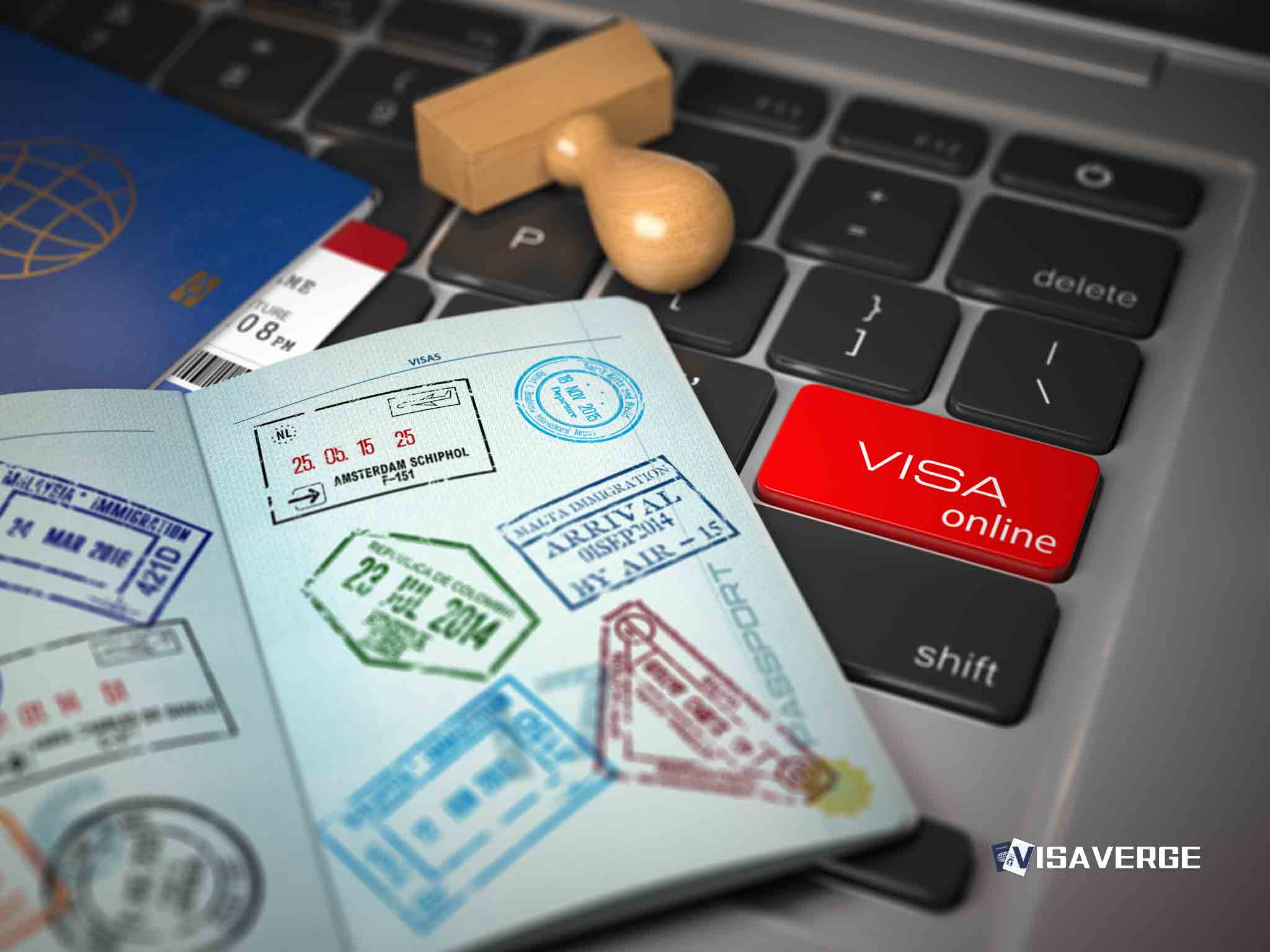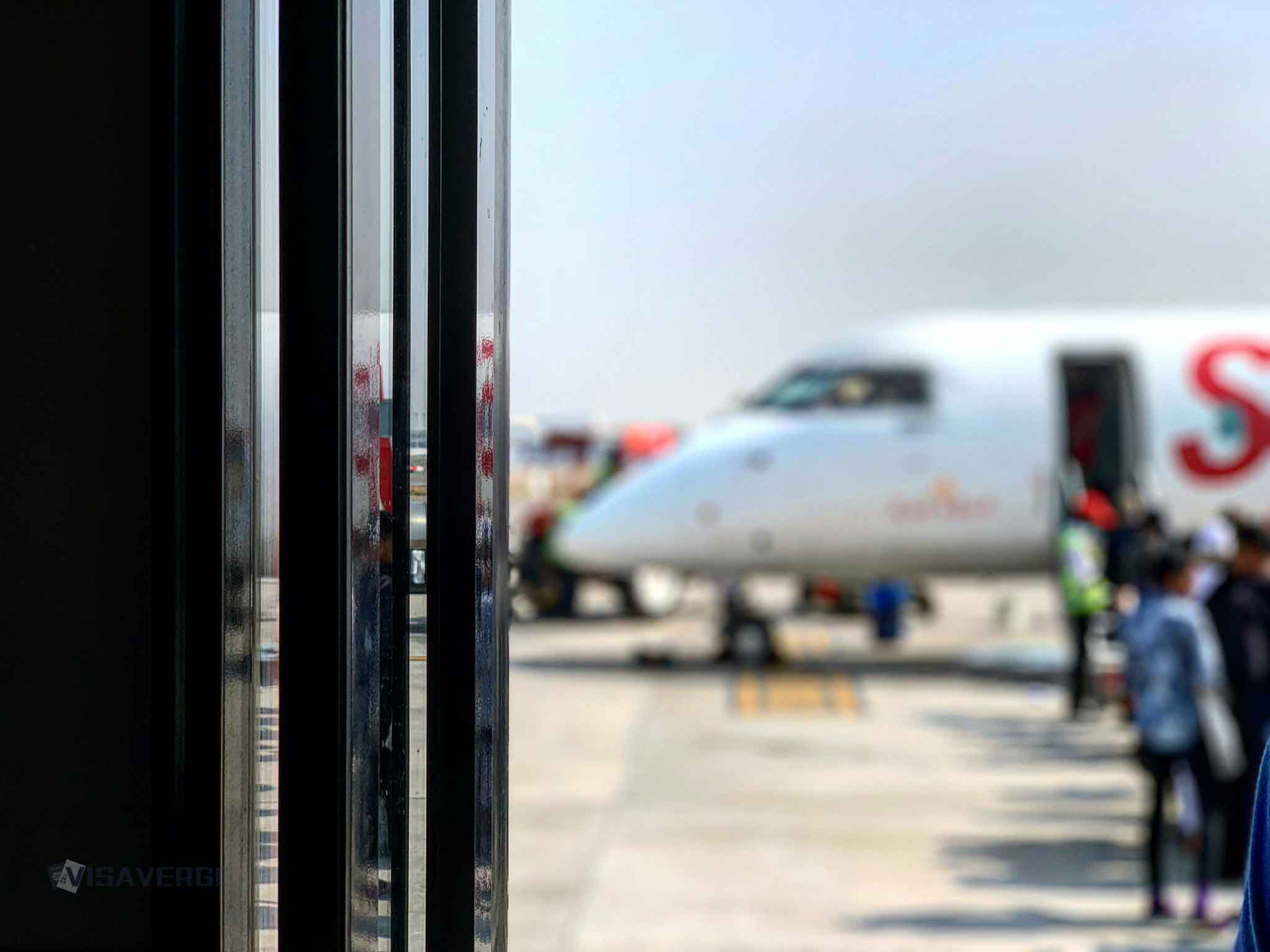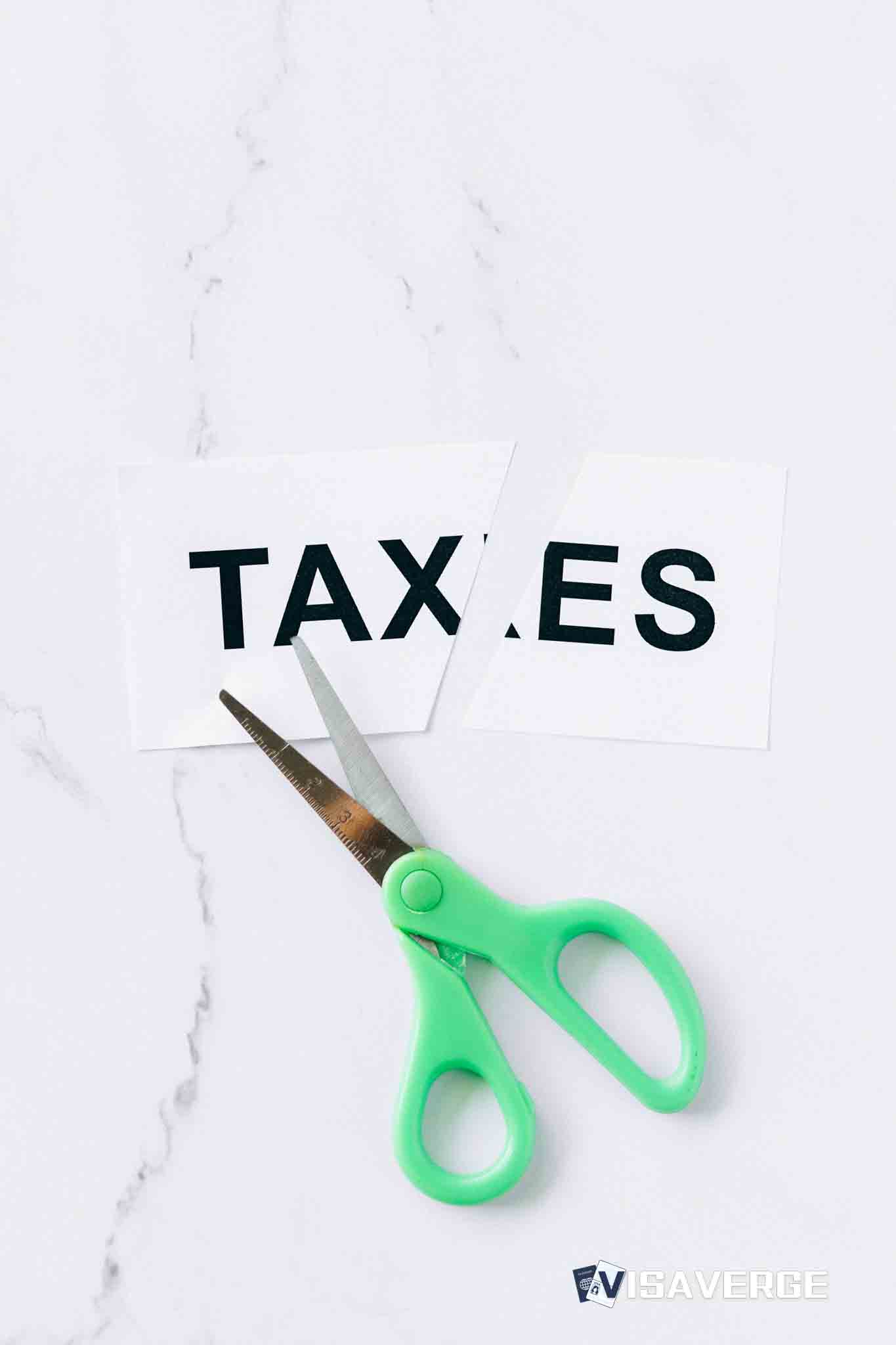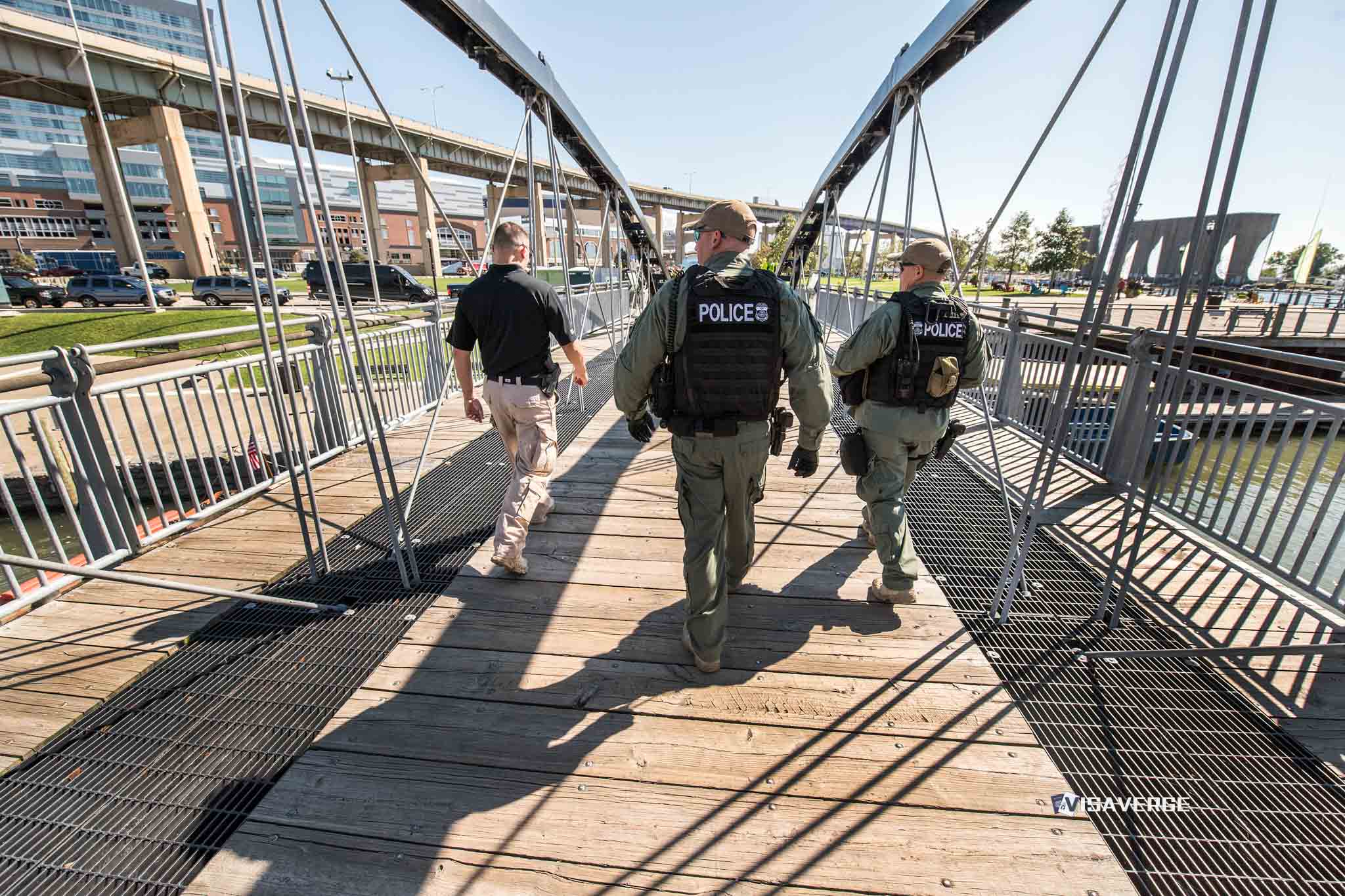Key Takeaways
• All 2025 US visa applicants must list social media usernames from the past five years, including F, M, and J visa holders.
• Applicants for F, M, and J visas must set social media accounts to public; no passwords are required, only usernames.
• Over 3.5 million people yearly must comply; refusal or false info can cause visa denial and long-term immigration issues.
The United States 🇺🇸 has made a major change to its visa process in 2025, now requiring all visa applicants to share their social media accounts as part of the application. This new rule affects millions of people each year, including students, workers, and families hoping to visit, study, or live in the United States 🇺🇸. The government says this step is needed to keep the country safe, but it also raises questions about privacy and fairness. Here’s a detailed look at what this policy means, who it affects, how it works, and what visa applicants should know before applying.
What Is the New Social Media Rule for Visa Applicants?

As of mid-2025, anyone applying for a United States 🇺🇸 visa—whether for a short visit, study, work, or permanent residence—must provide a list of all their social media accounts used in the past five years. This includes popular platforms like Facebook, Instagram, TikTok, LinkedIn, and X (formerly Twitter), as well as any other sites where the applicant has posted or interacted online.
Key points of the policy:
- All visa applicants must list every social media handle or username they have used in the past five years.
- Applicants for F (student), M (vocational student), and J (exchange visitor) visas must set their social media accounts to public.
- No passwords are required—only the usernames or handles.
- This rule applies to both immigrant (green card, asylum, naturalization) and nonimmigrant (tourist, student, work) visa applicants.
- The policy is based on Executive Order 14161, signed by President Trump in January 2025.
This change means that United States 🇺🇸 officials can look at public posts, photos, and connections to help decide if someone should be allowed to enter the country.
Who Must Follow This Rule?
The new social media requirement covers almost everyone applying for a United States 🇺🇸 visa, including:
- Tourists and business visitors (B-1/B-2 visas)
- Students (F visas), vocational students (M visas), and exchange visitors (J visas)
- Temporary workers (H, L, O, P, and other work visas)
- Immigrants applying for green cards (permanent residence)
- People seeking asylum (Form I-589) or U.S. citizenship (Form N-400)
- Family members joining relatives in the United States 🇺🇸
Over 3.5 million visa applicants are affected each year. The rule is especially strict for students and exchange visitors, who must make their accounts public so that officials can review their online activity.
Why Does the United States 🇺🇸 Want Access to Social Media Accounts?
The government says the main reason for this rule is to protect the country from security threats. By checking social media, officials hope to:
- Spot possible links to terrorism or extremist groups
- Find signs of fraud or false information in applications
- Identify people spreading misinformation or involved in harmful activities
- Verify the identity and background of applicants
According to analysis by VisaVerge.com, the United States 🇺🇸 believes that social media vetting is a modern way to keep up with new risks in a digital world. Officials argue that looking at public posts and connections can help them make better decisions about who should be allowed to enter the country.
How Does the Social Media Vetting Process Work?
When filling out a visa application, applicants must list every social media platform they have used in the last five years. This includes:
- The name of each platform (for example, Facebook, Instagram, TikTok, LinkedIn, X)
- The username or handle used on each account
Applicants do not have to give their passwords. However, for F, M, and J visas, all accounts must be set to public so that officials can view posts, photos, and connections without needing special access.
Steps for visa applicants:
- Collect a list of all social media accounts used in the past five years.
- Make sure all accounts are set to public (for F, M, and J visa applicants).
- Enter each account’s username or handle on the visa application form.
- Double-check that the information is complete and correct before submitting.
If an applicant leaves out an account or gives false information, their visa can be denied. In some cases, this could also affect future applications or lead to other immigration problems.
Official forms that now require social media information include:
- Form DS-160 (Nonimmigrant Visa Application)
- Form DS-260 (Immigrant Visa Application)
- Form N-400 (Application for Naturalization)
- Form I-589 (Application for Asylum and for Withholding of Removal)
What Social Media Platforms Are Included?
The rule covers all major social media platforms, including but not limited to:
- TikTok
- X (formerly Twitter)
- YouTube
- Snapchat
- Any other platform where the applicant has posted or interacted publicly
Applicants must include every platform they have used, even if it was only for a short time or if the account is no longer active.
What Are the Main Concerns for Visa Applicants?
Privacy
One of the biggest worries is privacy. Many people use social media to share personal photos, opinions, and connections with friends and family. Making these accounts public means that United States 🇺🇸 officials—and possibly others—can see this information. Some applicants may feel uncomfortable or unsafe sharing private details with strangers.
Free Speech
Some groups worry that people might stop sharing their true thoughts or opinions online if they know officials will be watching. This could make people less likely to speak freely or share honest opinions, especially about politics or sensitive topics.
Risk of Misunderstanding
Social media posts can be taken out of context or misunderstood. Jokes, memes, or comments made years ago could be seen as suspicious, even if they were harmless. There is also a risk that officials might misinterpret posts written in other languages or cultural styles.
Discrimination
Some experts warn that the rule could unfairly affect certain groups, such as students from specific countries or people with certain political or religious views. Immigration lawyers say that the policy could lead to more visa denials based on misunderstandings or bias.
How Does This Affect Students and Exchange Visitors?
Students and exchange visitors, especially those from countries like India, are directly affected by the new rule. The United States 🇺🇸 is a top destination for international students, and many now face extra steps and more scrutiny when applying for F, M, or J visas.
Key points for students:
- All social media accounts must be set to public before applying.
- Officials will review posts, photos, and connections as part of the application process.
- Any content that seems suspicious or inconsistent with the application could lead to questions or denial.
Students should carefully review their online presence, remove or explain anything that could be misunderstood, and be honest about all accounts used.
What Happens If an Applicant Refuses or Makes a Mistake?
If a visa applicant refuses to provide their social media accounts or does not set them to public (for F, M, and J visas), their application can be denied. Giving false or incomplete information can also lead to denial or even future bans from entering the United States 🇺🇸.
Possible consequences include:
- Immediate visa denial
- Long-term problems with future visa or immigration applications
- Possible investigation for fraud or misrepresentation
Applicants should be careful, honest, and thorough when listing their social media accounts.
What Do Experts and Stakeholders Say?
Government Officials
Officials from the United States 🇺🇸 Department of Homeland Security (DHS) and U.S. embassies say that the new rule is needed to protect the country from threats. They argue that social media is a key part of modern life, and checking it helps them spot risks that might not show up in other background checks.
Privacy Advocates and Immigration Lawyers
Privacy groups and many immigration lawyers are worried about the rule. They say it invades personal privacy, could chill free speech, and might lead to unfair treatment. They also warn that social media posts can be misunderstood, especially when taken out of context or translated from other languages.
Immigration Experts
Many experts agree that social media can help spot fraud or security risks, but they also say the rule makes the visa process more complicated and stressful. They recommend that applicants talk to a qualified immigration lawyer if they have questions or concerns about their online presence.
How Can Visa Applicants Prepare?
Here are some practical steps for visa applicants to follow:
- Make a list of all social media accounts used in the last five years, even if they are no longer active.
- Set all accounts to public if applying for F, M, or J visas.
- Review posts, photos, and connections for anything that could be misunderstood or seen as suspicious.
- Be honest and complete when filling out visa forms.
- Consider deleting old accounts that are no longer used, but do not hide or lie about them.
- If unsure, consult an immigration lawyer or official embassy resources for help.
What Is the Legal Basis for This Policy?
The rule is based on Executive Order 14161, signed by President Trump on January 20, 2025. The order is called “Protecting the United States from Foreign Terrorists and Other National Security and Public Safety Threats.” It requires all government agencies to use the same vetting standards and collect any information needed to check if someone is a security risk.
The Department of Homeland Security published a notice about collecting social media information in the Federal Register on March 5, 2025 (90 FR 11324). The public was invited to comment on the rule, but as of July 2025, no major changes have been made.
Are There Any Future Changes Expected?
The Department of Homeland Security held a 60-day public comment period in early 2025 to get feedback on the new rule. Some changes could be made in the future, but for now, the policy remains in place.
Officials are also working on new technology to help review social media data more quickly and accurately. This could mean even more detailed checks in the future, possibly including more platforms or deeper analysis of online activity.
Where Can Applicants Find Official Information?
Visa applicants should always use official government sources for the latest information and instructions. The U.S. Department of State’s visa page has up-to-date details about visa requirements, forms, and procedures. Applicants can also check embassy websites for country-specific updates.
For those who want to comment on the social media rule or read more about it, the Federal eRulemaking Portal (Docket ID USCIS-2025-0003) is the official place to submit feedback.
Real-World Example: Indian Student Applying for a U.S. Student Visa
Let’s look at a common scenario. An Indian student wants to study in the United States 🇺🇸 and applies for an F-1 visa. As part of the application, the student must:
- List every social media account used in the last five years (Facebook, Instagram, TikTok, LinkedIn, X, etc.)
- Set all these accounts to public so that U.S. officials can review them
- Make sure there is nothing on the accounts that could be misunderstood or seen as a security risk
- Be honest and complete in the application
If the student forgets to list an old account or leaves it private, the visa could be denied. If everything is in order, the application will move forward as usual.
Summary and Takeaways
The United States 🇺🇸 now requires all visa applicants to share their social media accounts and, for some visas, make them public. This rule is meant to help officials spot security risks, but it also raises privacy and fairness concerns. Applicants must be careful, honest, and prepared when applying. Checking official government resources and, if needed, talking to an immigration lawyer can help avoid problems.
Key steps for visa applicants:
- List all social media accounts used in the last five years
- Set accounts to public if required
- Review online content for anything that could cause concern
- Use official government sources for the latest rules and forms
Staying informed and prepared is the best way to handle these new requirements and improve the chances of a successful visa application.
Learn Today
Visa Applicant → A person submitting a request for permission to enter or stay in the United States.
Social Media Vetting → The process of reviewing public social media accounts to assess security risks for visa applicants.
Executive Order 14161 → A 2025 presidential directive mandating social media checks for visa applicants to protect national security.
F, M, J Visas → Types of nonimmigrant visas for students, vocational students, and exchange visitors respectively.
Form DS-160 → Official online form used to apply for nonimmigrant visas to the United States.
This Article in a Nutshell
Starting in 2025, all US visa applicants must share social media usernames from the past five years to enhance security. Students, workers, and visitors must comply, with some required to make accounts public. This raises privacy concerns but aims to prevent fraud, terrorism, and misinformation in visa applications.
— By VisaVerge.com







